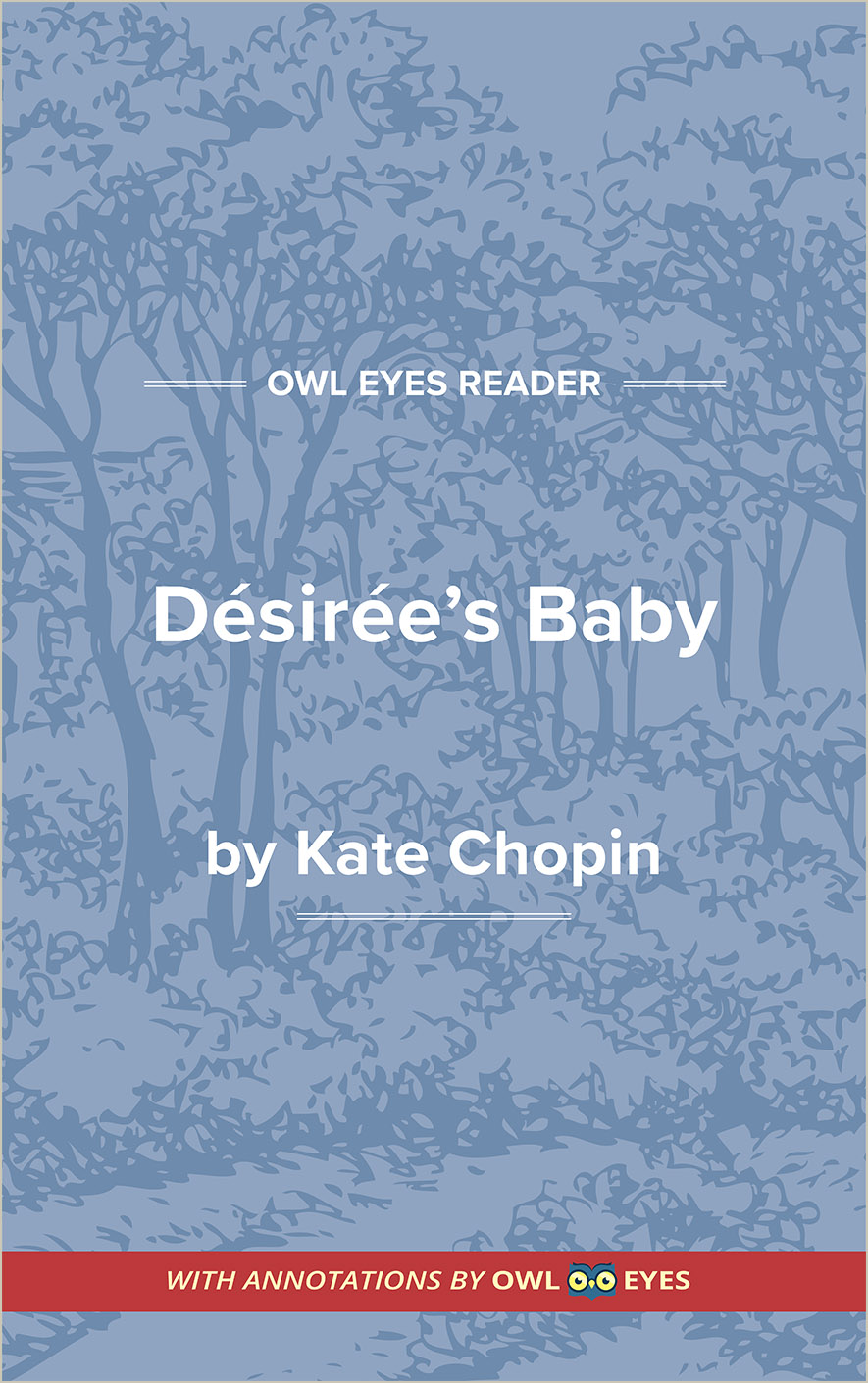Analysis Pages
Themes in Desiree's Baby
The Sequela of Sexism: One of the central tragedies of “Désirée’s Baby” is the way in which Armand treats Désirée on the basis of her sex. When the couple realizes that their baby may be of mixed racial origin, Armand immediately blames Désirée and denounces her. While his assumptions are based on her unknown origins, the structure of Southern society—with its implicit sexism—allows Armand to incriminate Désirée without resistance or consequence.
The Ravages of Racism: Racism is perhaps the defining element of the societies of the American South in the early to mid 19th century. This racism—which placed white above blacks—drives the plot of “Désirée’s Baby,” most notably through the behavior of Armand. Not only is Armand a slave owner, but also he is a violent, abusive one. When it is revealed that his child may not be entirely white, he falls into a terrible rage, casting Désirée out.
Themes Examples in Desiree's Baby:
Désirée's Baby
🔒"blessing of God..." See in text (Désirée's Baby)
"Désirée was miserable enough to die...." See in text (Désirée's Baby)
"belongs to the race that is cursed with the brand of slavery.”..." See in text (Désirée's Baby)
"and it was he who dealt out to a half dozen negroes the material which kept this fire ablaze...." See in text (Désirée's Baby)
"and she did not come back again..." See in text (Désirée's Baby)
"He thought Almighty God had dealt cruelly and unjustly with him..." See in text (Désirée's Baby)
"A quick conception of all that this accusation meant for her nerved her with unwonted courage to deny it...." See in text (Désirée's Baby)
"Oh, Mamma, I'm so happy; it frightens me...." See in text (Désirée's Baby)
"La Blanche's cabin..." See in text (Désirée's Baby)
"seeing her there..." See in text (Désirée's Baby)
"seeing that she was without child of the flesh..." See in text (Désirée's Baby)
"Providence..." See in text (Désirée's Baby)

